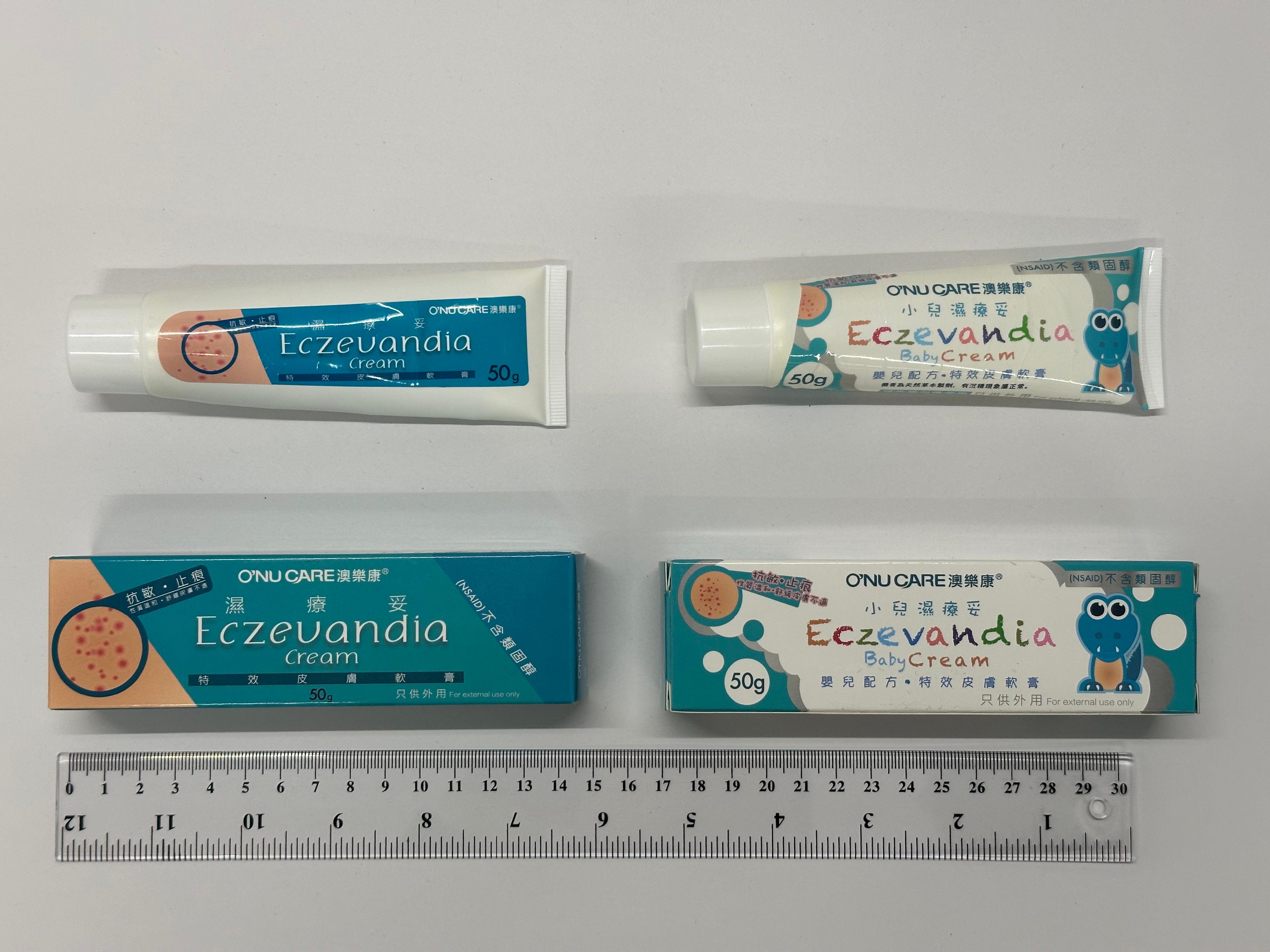Public urged not to buy or use two topical products labelled “Eczevandia Cream” and “Eczevandia Baby Cream” (with photo)
The Department of Health (DH) today (January 9) urged the public not to buy or use two topical products labelled "Eczevandia Cream" and "Eczevandia Baby Cream" (see photo), as they are suspected of containing undeclared controlled drug ingredients.
"The DH received intelligence that the premises of a Listed Seller of Poisons (commonly known as medicine store) in Ho Man Tin was suspected of selling the above products and immediately took follow-up action by purchasing product samples from the premises concerned for analysis. The laboratory test results revealed that the samples of both products contained mometasone furoate, while the sample of "Eczevandia Cream" also contained miconazole. Miconazole and mometasone furoate are Part 1 poisons under the Pharmacy and Poisons Ordinance (Cap. 138) (PPO). The products are also suspected of being unregistered pharmaceutical products. The DH, in collaboration with the Police, took enforcement action at the premises today. During the operation, a 50-year-old man and a 54-year-old woman were arrested for suspected illegal sale and/or possession of Part 1 poisons and unregistered pharmaceutical products," a spokesman for the DH said.
The DH will continue to follow up and investigate the incident.
Mometasone furoate is a steroid substance for treating skin inflammation. Inappropriate or excessive application of steroids could cause skin problems and body-wide side effects such as moon face, high blood pressure, high blood sugar, muscle atrophy, adrenal insufficiency and osteoporosis. Miconazole is used for the treatment of fungal infection with side effects that include local irritation and sensitivity reactions. Products containing miconazole should be supplied in the premises of an Authorized Seller of Poisons (i.e. pharmacy) under the supervision of a registered pharmacist, while products containing mometasone furoate should be used under a doctor's directions and be supplied in a pharmacy under the supervision of a registered pharmacist upon a doctor's prescription.
"According to the PPO, all pharmaceutical products must be registered with the Pharmacy and Poisons Board of Hong Kong before they can be sold in the market. Illegal sale or possession of unregistered pharmaceutical products or Part 1 poisons are criminal offences. The maximum penalty for each offence is a fine of $100,000 and two years' imprisonment. Upon completion of the investigation, the DH will seek advice from the Department of Justice on prosecution matters and will also refer the case to the Board for any necessary disciplinary action," the spokesman said.
The DH spokesman strongly urged members of the public not to buy or use products of doubtful composition or from unknown sources. All registered pharmaceutical products should carry a Hong Kong registration number on the package in the format of "HK-XXXXX". The safety, quality and efficacy of unregistered pharmaceutical products are not guaranteed.
"People who have purchased the products concerned should stop using them immediately and consult healthcare professionals if in doubt or if they feel unwell after use. They may submit the products to the Drug Office of the DH at Room 1804-06, 18/F, Wing On Kowloon Centre, 345 Nathan Road, Kowloon, during office hours for disposal," the spokesman said.
